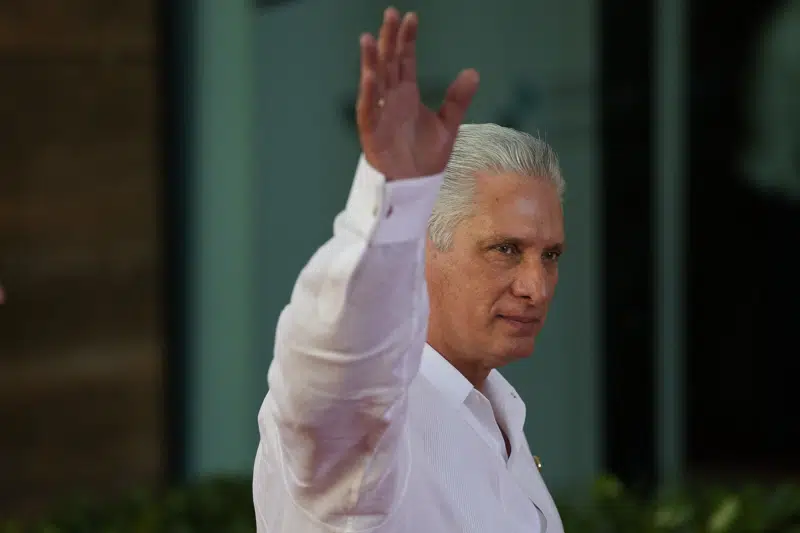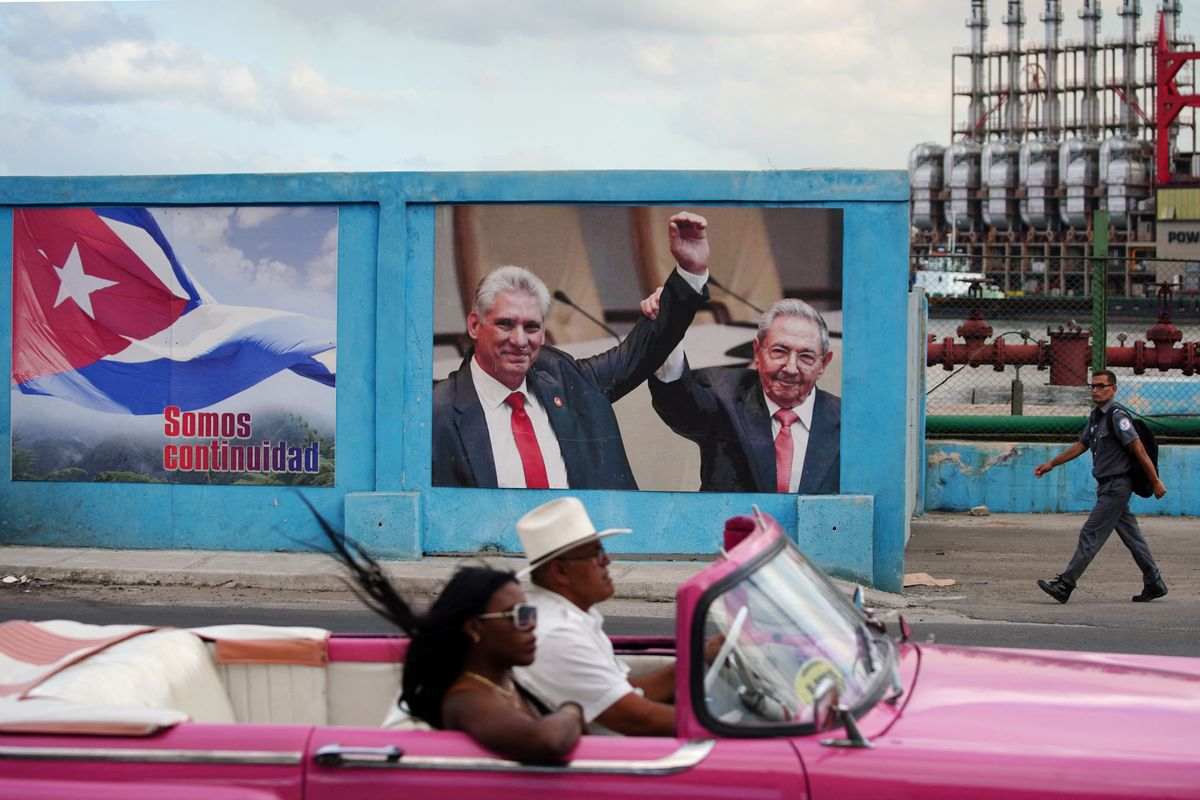Cuba’s National Assembly Ratifies President Díaz-Canel’s Second Term
Cuba's President Miguel Díaz-Canel arrives for a session during the 28th Ibero-American Summit in Santo Domingo, Dominican Republic, March 25, 2023. Source: AP Photo/Ariana Cubillos
The Cuban National Assembly ratified President Miguel Díaz-Canel’s second five-year term in office on Wednesday. 459 members out of 470 voted in support. Vice President Salvador Valdés Mesa received 439 votes, as well. These results were largely anticipated under a context where there were no challengers.
The National Assembly was selected in March, through an election that is essentially to endorse candidates, rather than choosing them. There are no opposition candidates, and every pre-selected contender just needed 50 percent of the vote to win a seat. Half of the pool of candidates were chosen in municipal elections, and the other half were nominated by various social groups like workers unions. Every potential candidate is vetted by the National Candidacy Commission, which is an election committee connected to the ruling Communist Party of Cuba, the only existing party in the country, making the elections completely uncompetitive.
With this composition of the legislature, Díaz-Canel’s ratification was expected. He was former President Raúl Castro’s chosen successor, and replaced him as President in 2018 and First Secretary in 2021. He is the first non-Castro head of the Communist Party in six decades, as Raúl Castro came into power after his brother, the revolutionary leader Fidel Castro, died in 2016.
After Díaz-Canel assumed office, he chose to keep most of the same top officials in the government. His first term has been a continuation of Castro’s rule, with similar ideals and policies as his predecessor. Moreover, Raúl Castro is still very politically active—he is a member of the National Assembly and holds the title of Army General. In fact, with so few new faces there has been no indication of Díaz-Canel’s successor, despite the law limiting presidents to two terms.
An image of Cuba's former President Raúl Castro, alongside Díaz-Canel, borders a sign that reads: "We are continuity.” April 17, 2023. Photo: Reuters/Alexandre Meneghini
Díaz-Canel inherited several long standing economic issues, which have worsened during his term. Trump ended Obama’s rapprochement policy in 2018, imposing new economic sanctions that range from bans on government-owned hotels to cigars and rum. Various restrictions on trade and travel have been devastating to an economy that is dependent on tourism and remittances.
The coronavirus pandemic worsened the situation, as both the tourist industry and exports collapsed. Cuba has been facing serious food, medicine, and fuel shortages. This is especially damaging, as Cuba imports 70 percent of its food. The GDP decreased 11 percent in 2020, and last year inflation was at 40 percent—partially due to a policy ending artificial parity with the USD, which devalued the local currency.
The devastating economic crisis brought people out onto the streets in July 2021, with the largest protests in the country’s history since the revolution. Cubans demonstrated against severe blackouts, a lack of civic freedom, and a worsening standard of living. The protests were suppressed by the police, leading to one dead and 1300 imprisoned.
This worsened the relationship between Cuba and the United States. The Cuban government accused the demonstrators of being agents of the United States. The Biden administration responded by imposing new sanctions and demanding the release of prisoners. At the same time, there has been a significant exodus of Cuban emigrants, with 220,000 reported at the US border in 2022.
Former Cuban diplomat Carlos Alzugaray explains how the United States’ foreign policy is affecting Cuba’s domestic politics, stating that “the sanctions hurt but serve as a scapegoat for the economic problems. They enhance the idea that this is a city under siege, that this is a country under siege. There are many ways that Americans would look at this: ‘rally around the flag,’ ‘circle the wagons,’ so the Cuban government is very good at doing that.”
This blame towards the United States has become another tool for Díaz-Canel’s presidency. It seems that despite the current economic crisis, his political position is secure.


